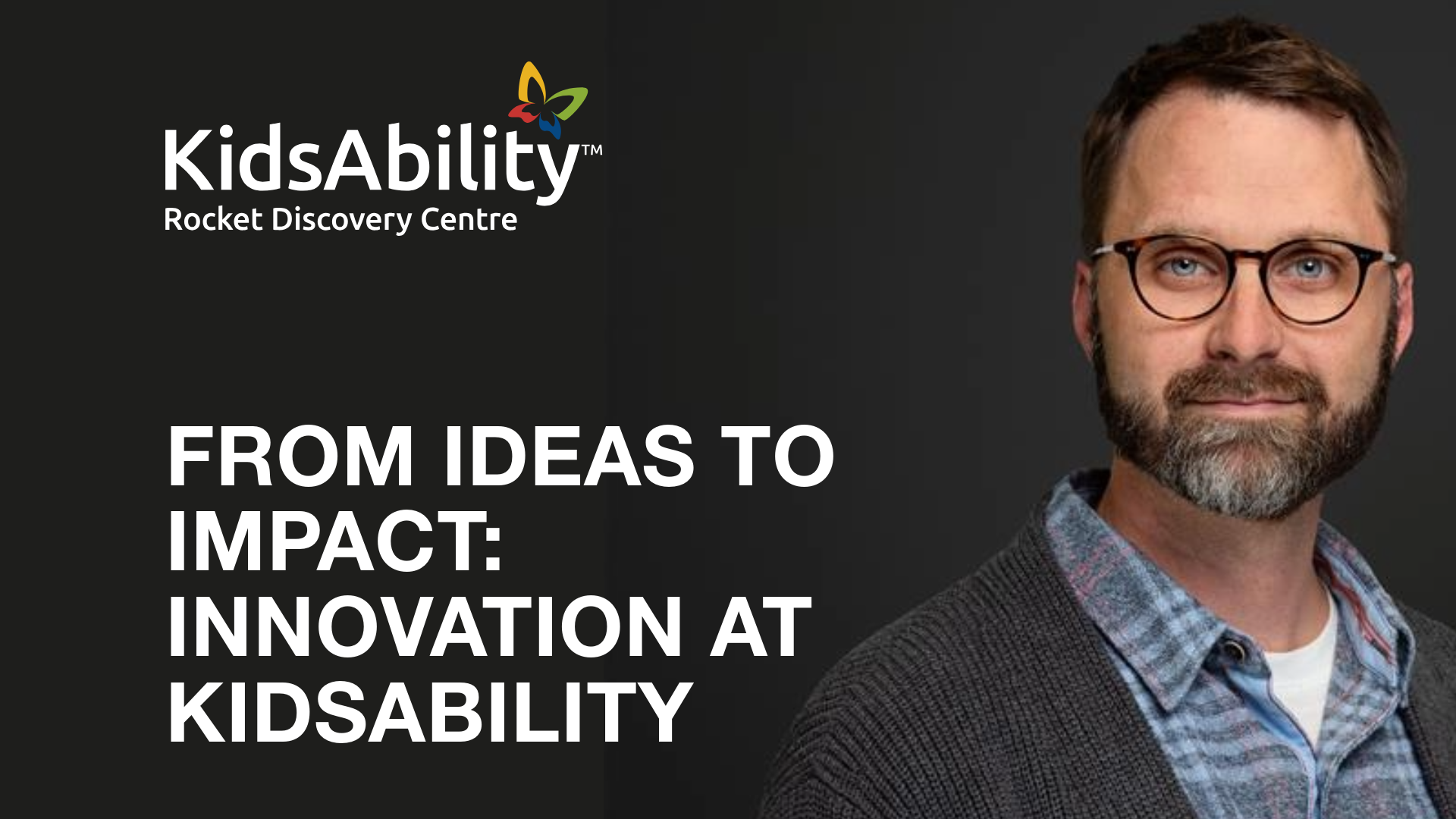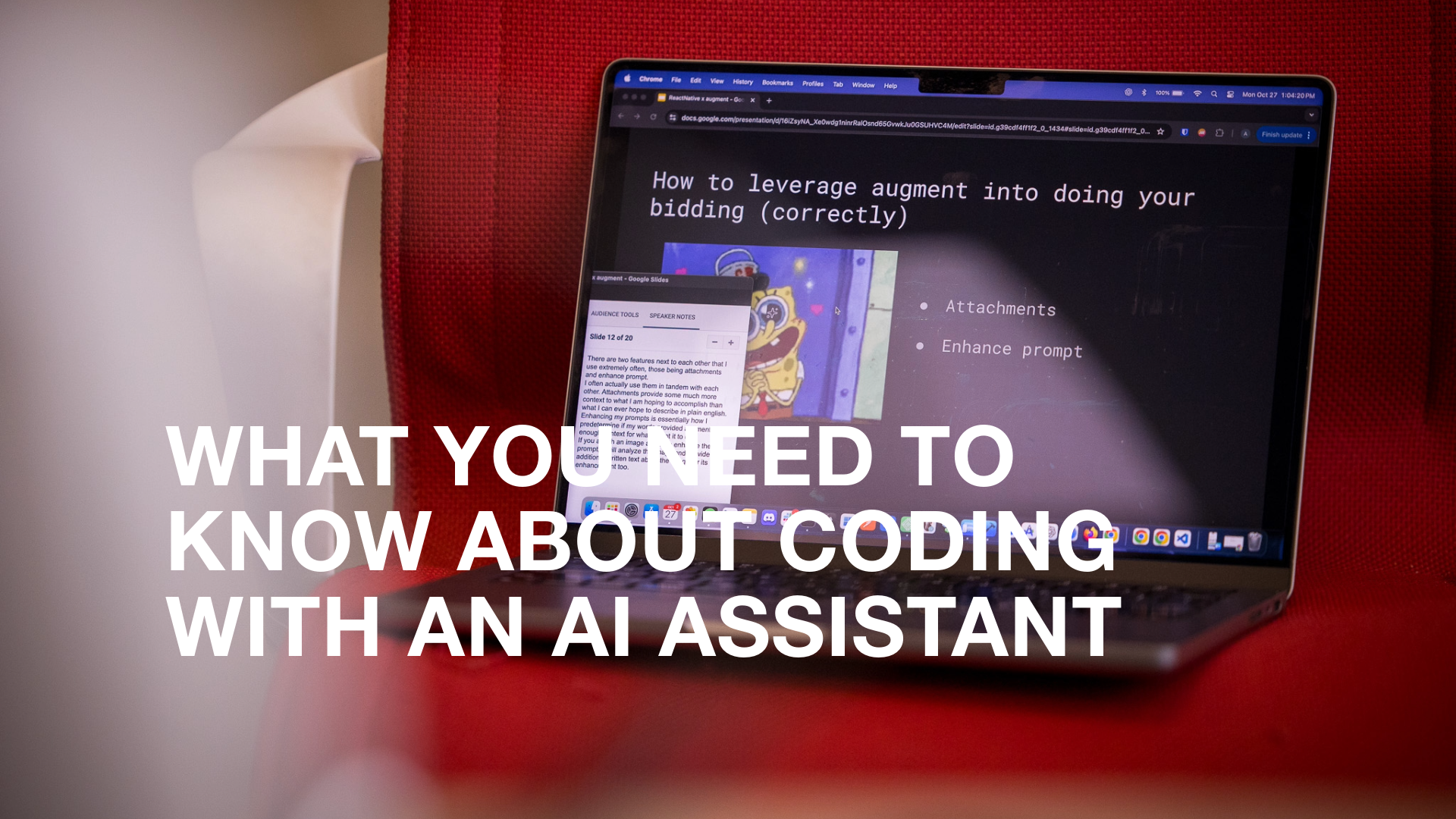We’ve always been fascinated by how innovation happens inside organizations. There is an art and a science to how teams take complex challenges and find creative, sustainable solutions.
That’s why we were excited to speak with Brendan Wylie-Toal, Director of Innovation at KidsAbility’s Rocket Discovery Centre. It’s a launchpad for transformative ideas in pediatric rehabilitation. The Centre brings together clinicians, researchers, families, and community partners to accelerate solutions that reduce wait times for therapy, remove barriers to access, and improve the quality of care for every child.
KidsAbility is one organization close to our hearts. Members of our team have seen firsthand the difference its programs make for children and families across Waterloo Region and Wellington County.
In our conversation, Brendan shared how his background in ecology and social innovation shaped his systems-based approach to improving care and how KidsAbility is turning research and experimentation into real-world results for families who can’t wait.
BitBakery: Many organizations say they don’t have the time or budget for innovation. How did you show that it was possible and valuable?
Brendan: Scheduling was an early example that proved the impact. We had sub-optimal booking rules designed by people with deep rehab expertise, but not necessarily scheduling expertise. Clients were sometimes booked four months out, which led to high cancellation rates.
We partnered with a Canada Research Chair in Health Analytics to redesign the process. For about $50,000 in project costs, we cut no-shows by 50 per cent and recovered roughly $200,000 worth of visits every year. It was a clear demonstration that innovation can create long-term, compounding value.
BitBakery: Wait times are a big challenge in the sector. What other changes have made a difference?
Brendan: Our Early Engagement Strategy, which we call Launch Groups, has been transformative. Families used to wait months for their first appointment. Now, families meet with treating therapists within two weeks. It feels like a playdate with several families and children together, playing while therapists observe and talk. Therapists can then make on-the-spot assessments.
We also introduced play-based group assessments and therapy sessions, tripling or quadrupling the number of children seen per appointment. Wait times have dropped significantly, years ahead of schedule of what we were planning.
BitBakery: Those are significant improvements. How do you come up with ideas like that?
Brendan: Partnerships. Our staff have incredible depth in rehab, but it’s focused on that field. Meanwhile, we’re surrounded by some of the best universities and colleges in the world. Innovation thrives on diverse perspectives, so we intentionally partner outward.
For scheduling, we brought in health analytics researchers. For Launch Groups, we adapted models from other centres. The idea for high-ratio therapy came from a clinician who’d practised in Alberta and asked, “Why don’t we do this here?”
The principle behind RocketLab is simple: the best ideas come from connecting our problems with other people’s expertise.
BitBakery: RocketLab even has its own identity and branding. Was that a conscious choice?
Brendan: Yes, very much so. We borrowed from corporate innovation models, notably Intel’s approach. Intel believed that most of the knowledge they needed already existed; it just hadn’t been commercialized yet.
In pediatrics, we’re often a decade behind adult healthcare in knowledge translation. The discoveries we need are already out there, we just have to find and adapt them.
RocketLab sits half inside and half outside KidsAbility. That position lets us influence priorities internally while working with universities and external scientists. By testing early-stage ideas outside the day-to-day operation, we can de-risk them and only bring in the ones that have strong evidence behind them.
BitBakery: Could other treatment centres replicate what you’re doing?
Brendan: Absolutely. We share our findings through conferences and publications, but many organizations don’t have the internal capacity to act on them. We’ve been exploring ways to build that capacity by sharing our model or developing toolkits for interventions like Launch Groups.
Everything we’re building is designed to be replicable. The goal is to help other organizations benefit from the same kind of system improvements we’ve seen here.
BitBakery: Looking ahead, how has this work affected funding—both government and charitable?
Brendan: Government support hasn’t necessarily increased in dollars, but our reputation has strengthened significantly with the ministry, which matters when you’re primarily publicly funded.
It’s also opened doors to provincial and federal research grants that KidsAbility hadn’t accessed before. And on the charitable side, it’s allowed our foundation to connect with a new type of donor, people who want to invest in innovation and systems change, not just equipment or salaries. We can now offer that avenue for impact.
Innovation doesn’t always mean inventing something new. It’s often found in looking at old challenges through a new lens. What Brendan and the team at KidsAbility are proving is that meaningful change can come from curiosity, collaboration, and a willingness to test ideas that might just work better.
At BitBakery, we believe the spirit of experimentation drives progress, whether in pediatric care, technology, or how teams build together.




